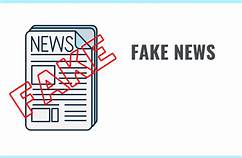Guidelines To Prevent False Or Misleading Advertisements:

The Central Consumer Protection Authority (CCPA) recently issued guidelines to prevent false or misleading advertisements.
Guidelines:
Non-misleading and valid Advertisements.
- An advertisement can be considered non-misleading if it contains true and honest representation of goods and does not exaggerate the accuracy, scientific validity or practical usefulness or capability.
- In case of unintentional lapse, the advertisement may still be considered as valid if the advertiser has taken prompt action in letting the consumer know the deficiency.
Surrogate Advertisements:
- Surrogate advertisement” refers to the advertisement of goods in the shadow of other goods.
- For example, the advertisement of tobacco in the garb of pan masala.
- No surrogate advertisement or indirect advertisement shall be made for goods or services whose advertising is otherwise prohibited or restricted by law.
- No circumventing of such prohibition or restriction and portraying it to be an advertisement for other goods or services shall be allowed.
Advertisements Targeting Children:
- Advertisements that condone, encourage, inspire or unreasonably emulate behaviour that could be dangerous for children or take advantage of children’s inexperience, credulity or sense of loyalty etc. have been prohibited.
- It goes without saying that advertisements tend to influence children’s buying behaviour and encourage them to consume unhealthy goods, or develop negative feelings toward healthy goods.
Disclaimers in Advertisements:
- The guidelines have also introduced the need to have “disclaimers in advertisements” to clarify a claim made in such advertisement or make qualifications or resolve ambiguities therein in order to explain such claim in further detail.
- Moreover, the advertiser must not “attempt to hide material information with respect to any claim made in such advertisement, the omission or absence of which is likely to make the advertisement deceptive or conceal its commercial intent”.
Duties:
- The guidelines also impose duties on the manufacturers, service providers and advertising agency to not claim and make comparisons in an advertisement which relate to matters of objectively ascertainable facts.
- Moreover, the advertisement must be framed to gain the trust of the consumers and not to “abuse the trust of consumers or exploit their lack of experience or knowledge”.




